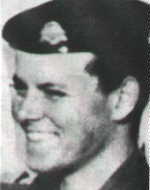Son of Alexander and Olga. He was born on 21.2.1949 in Budapest, the capital of Hungary. His family immigrated to Israel in May 1957. He studied in the elementary and high school of Kibbutz Givat Haim (Ichud). Gabriel joined the Hanoar Haoved Vehalomed youth movement (the Union of the Sons of the Union – the kibbutzim). During his high school years, he taught young people in the framework of the children’s company. During his few spare hours, he read many books and poetry, engaged in various handicrafts, and even in sports – weightlifting. In the list written by his teacher, he noted the initiative he had taken, the ingenuity he discovered, and the agility of his hands at work. In his Bar Mitzvah year he accepted as a research mission a study on the subject of the “Palmach.” At first Gabriel was not enthusiastic about this work, for fear that he would have to work hard to obtain the material. In his 8th grade he was caught in electricity, sat for hours in an electronics laboratory he had set up himself, and was not restless until he managed to put together a transmitter, and he was full of ideas as a grenade – how to do the guided material He was more articulate and clearer, and his opinions were original and unconventional, and in his conversations he was a man of things who stood firm and his words were edited Gabriel was an excellent student and a good friend and in the following classes, after he had prepared his six lessons to help anyone who was not asked, and before he finished high school he wrote a research paper on the nematode disease, which causes buds to the roots of the peach tree. When he discovered that the exact cause of the disease was not known, he began to study the causes of the disease and the life cycle of the nematode, and he also investigated the effect of various substances on the disease and produced an excellent summary work. As a rule, there was nothing in the area of agriculture that he did not want to know well and reach its roots. Each problem aroused in him interest, enthusiasm and a desire to seek solutions. During the Six-Day War, as a student in the higher grades of the school, he was responsible for major security activities, and as such he played an important role with distinction, and in mid-November 1967 he enlisted in the IDF and volunteered for the Israel Air Force. Gabriel aspired to be a combat pilot, but during the first period of the course he discovered a small physical defect that prevented his continued participation. Gabriel responded with great sorrow to his removal from the course and went through a crisis period of a week, in which he closed in his room and did not get out of it. He was later assigned to the Armored Corps. During his service he completed an officers’ course. He was a brave fighter, loved by his friends and volunteered for every mission. He fought against terrorists on the Jordanian border, participated in policing and purifying operations in the refugee camps in Gaza, and more. Shortly before he fell, he was injured in the ditch and after a short recovery period, after the doctors could not remove the shrapnel that had hit his knee, his physical fitness was reduced and he was transferred to the staff. Gabriel fought for his return to the Canal, where they needed him. He was transferred to a training position and instructed reservists. This made a strange impression on him; He, young and tender, will command adults and instruct them how and what to do. Although he recognized the importance of the job and thought that he might find satisfaction in it, it was not. His desire to move forward, not to remain silent, grew stronger. He vehemently refused to do so and demanded that he return to his unit and finally won his war and was returned to the Canal. On February 21, 1970, he died of wounds sustained in the shelling of an enemy. He was laid to rest in the Givat Haim cemetery. In “Thirty” of his death, he published Giv’at Hayy(Uniting) the booklet “within us” devoted to him; There was also a booklet called “Gabi,” which contained some of Gabriel’s qualities in the form of short notes. Among other things are the words of a commander who “lost the good of his subordinates.” Among other things, the commander writes: “This period, which we passed with Gabi, is divided into intermediate periods, some of which are more difficult and some less. Our stand in the battle, known as the Battle of the Canal, is known as the steadfastness of the nation’s leaders. There is no doubt that this steadfastness in the face of the enemy was the result of education at home, in the family and in society. And for this you will be blessed, because you raised them and placed them in the service of the people and the state. “The commander concludes with the participation of the soldiers of the unit in the mourning of the parents. The late builder I did not know. “
